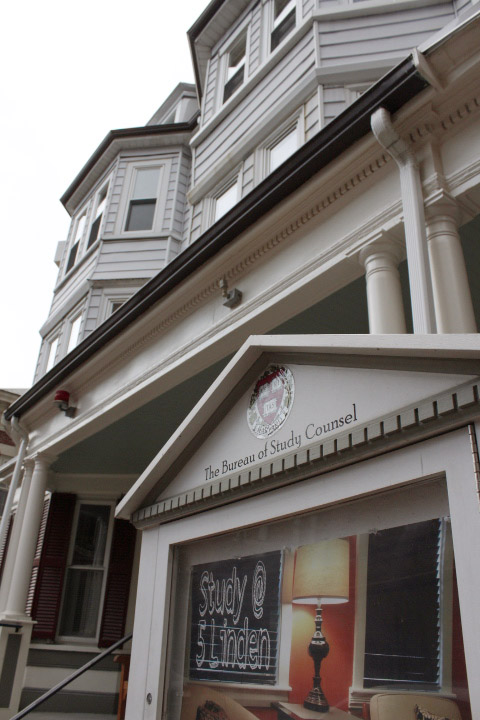
News
When Professors Speak Out, Some Students Stay Quiet. Can Harvard Keep Everyone Talking?

News
Allston Residents, Elected Officials Ask for More Benefits from Harvard’s 10-Year Plan

News
Nobel Laureate Claudia Goldin Warns of Federal Data Misuse at IOP Forum

News
Woman Rescued from Freezing Charles River, Transported to Hospital with Serious Injuries

News
Harvard Researchers Develop New Technology to Map Neural Connections
As Term Progresses, Bureau of Study Counsel Backed Up

Many students who have sought peer tutoring from the Bureau of Study Counsel this fall are still waiting to be assigned tutors as the semester draws on, due in large part to high demand and a shortage of tutors.
The Bureau of Study Counsel, which provides tutoring and counseling services for students, is currently in need of on-call tutors for large, lecture-style and introductory courses like Economics 10a: “Principles of Economics,” Computer Science 50: “Introduction to Computer Science I”, and Math 21a: “Multivariable Calculus,” among others, according to peer tutors and emails sent by the Bureau requesting additional help.
While BSC does not turn students who need help away from its services, it puts potential tutees on a waiting list until a tutor becomes available, according to Ratna Gill ’16, who has sought tutors this fall for both Economics 1010a: “Microeconomic Theory” and Economics 1123: “Introduction to Econometrics.” Gill said that she signed up to receive a tutor for both of these courses during shopping week and has yet to be assigned a tutor.
“It’s not really a denial so much as ‘we’re still looking,’” Gill said, noting that no tutor materialized even as she neared her first midterm.
BSC Associate Director Sheila M. Reindl wrote in a statement that while student demand does not seem any higher than last year, “it is not uncommon” to see a shortage of tutors. She also wrote that “the College does not release information about tutoring use and availability for specific courses.”
With requests stacking up, some student tutors say the need for tutors seems higher than usual.
“I actually think it’s way worse this year than last year,” said China R. Cardriche ’16, who tutored in math and economics last year in addition to this year. “Being a tutor, you want to be able to help all these people, but you know physically you don't have enough time in the day, so it is going to feel like you're not meeting the needs.”
According to peer tutors, the Bureau has been trying to recruit on-call tutors, who help students in specific classes over the course of a term, by sending numerous email requests daily. BSC has also brainstormed additional recruitment methods in tutor-wide meetings.
“It doesn't seem like the BSC really recruits for tutors as much as they should,” said Ronald D. Laracuente ’17, who tutors in Life Sciences 1a: “Introduction to the Life Sciences.” “A few tutors suggested that we go into a class [in sequence] right after Ec 10, LS1a, or something, and ask those students to tutor, but that doesn’t really happen.”
He added: “ I feel like if there was a litte more recruiting, this problem would be solved.”
According to the BSC website, about 400 students work as peer tutors in a typical year. Students must have earned an A or an A- in a course to be eligible to become a tutor.
Sietse K. Goffard ’15, a tutor in economics, said that recently the BSC has tried to coordinate with department advisers and professors to recommend students to tutor courses. Some professors, like Economics 1010a professor Jeffrey A. Miron, said they are reaching out to students who took their courses last year to solicit help.
Yet despite efforts to find more tutors, the problem persists, and will only make it harder for students in need of assistance as the semester goes on, according to Cadriche.
“There are all these people out there in need of clarity and help,” Cardriche said. “To not have that just creates more stress.”
—Staff writer Meg P. Bernhard can be reached at meg.bernhard@thecrimson.com. Follow her on Twitter @Meg_Bernhard.
Want to keep up with breaking news? Subscribe to our email newsletter.
